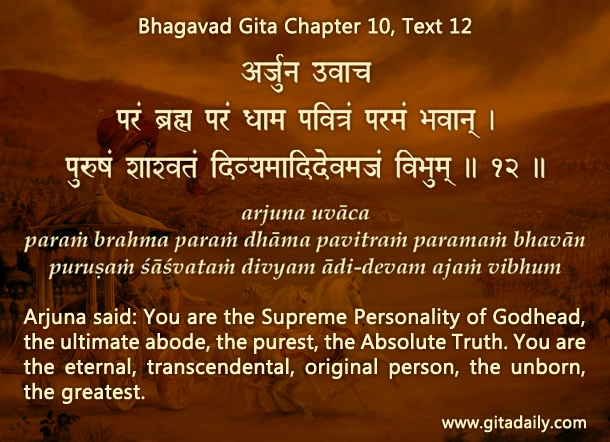
Some religions call for faith based on the miracles that happened at their inception, say, the resurrection of their founder from the dead. Atheists contest the historicity of such miracles, pointing, say, to contradictory accounts in various source texts.
Irrespective of the verdict in the historicity debate, the reliance of faith on miracles can be unhealthy.
Though miracles may inspire faith, such miracle-based faith is often unsustainable and un-transformational.
It is unsustainable because it makes believers expect and depend on similar future miracles for the sustenance of their faith.
It is un-transformational because it shifts the focus of believers away from the practical things they need to do to reform themselves to the miraculous things they expect God to do for their redemption.
Given such disadvantages of miracle-based faith, it is natural that the Bhagavad-gita being a book of profound spiritual wisdom doesn’t rely on it. Though the Gita does feature in its eleventh chapter a miraculous vision of the Universal Form, that vision is preceded by Arjuna’s faith-declaration in the tenth chapter. Arjuna accepts Krishna’s supremacy (10.12) based on the coherent and cogent philosophical wisdom of the Gita. And the Gita concludes with a call to not belief in miracles but to individual transformation (18.66), wherein one faithfully surrenders everything for loving Krishna.
Such action-inspiring faith is sustainable and transformational: sustainable because it depends on not the unpredictable occurrence of miracles but the ever-available wisdom of the Gita; and transformational because it places the onus for transformation, for redirecting one’s love from matter to Krishna, where it belongs: on the individual.
This faith is supremely consequential – it brings about the ultimate miracle of liberating believers from the miseries of material existence and transporting them to Krishna’s eternal world of love.
Explanation of article:


thank you so much for putting into words that whic i have previously only been able to feel or contemplate in meditation. I used to be a very angry athiest, having grown up in the southern U.S. in a dominantly evangelical, right wing, christian community….and i always would rant about how silly christianity was and how flawed and hypocritical it was, yet i was conflicted. I longed to know, and have a relationship with God…but the only Spiritual path i was shown by others seemed so false, and when I would say this, i would be judged…and i began to feel like an outkast for not believing in what my community did…. I now understand it seemed fantastical, and unrealistic to me because of its realiance on miraculous events and parlor tricks to gain followers faith….i also came to see that my anger or judgement of christians as inferior to me or wrong in some way was only serving to distance me from my own God. Anyone who seeks to the ultimate truth in love and faith is just trying to find him in their own way. Maybe they have great societal pressures and family traditions and have never been shown the philosophical path that I have found through Gita…but that doesnt make them inferior to me in any way. I let go of my bad resentments and realized there is only one God. And we cant become closer to him if we are holding on resentments or “hang ups” about how others worship.
Dear Scott, Thanks for sharing your experience and realization. All the best for your spiritual journey. Hope Gita-daily helps you forward on that path.